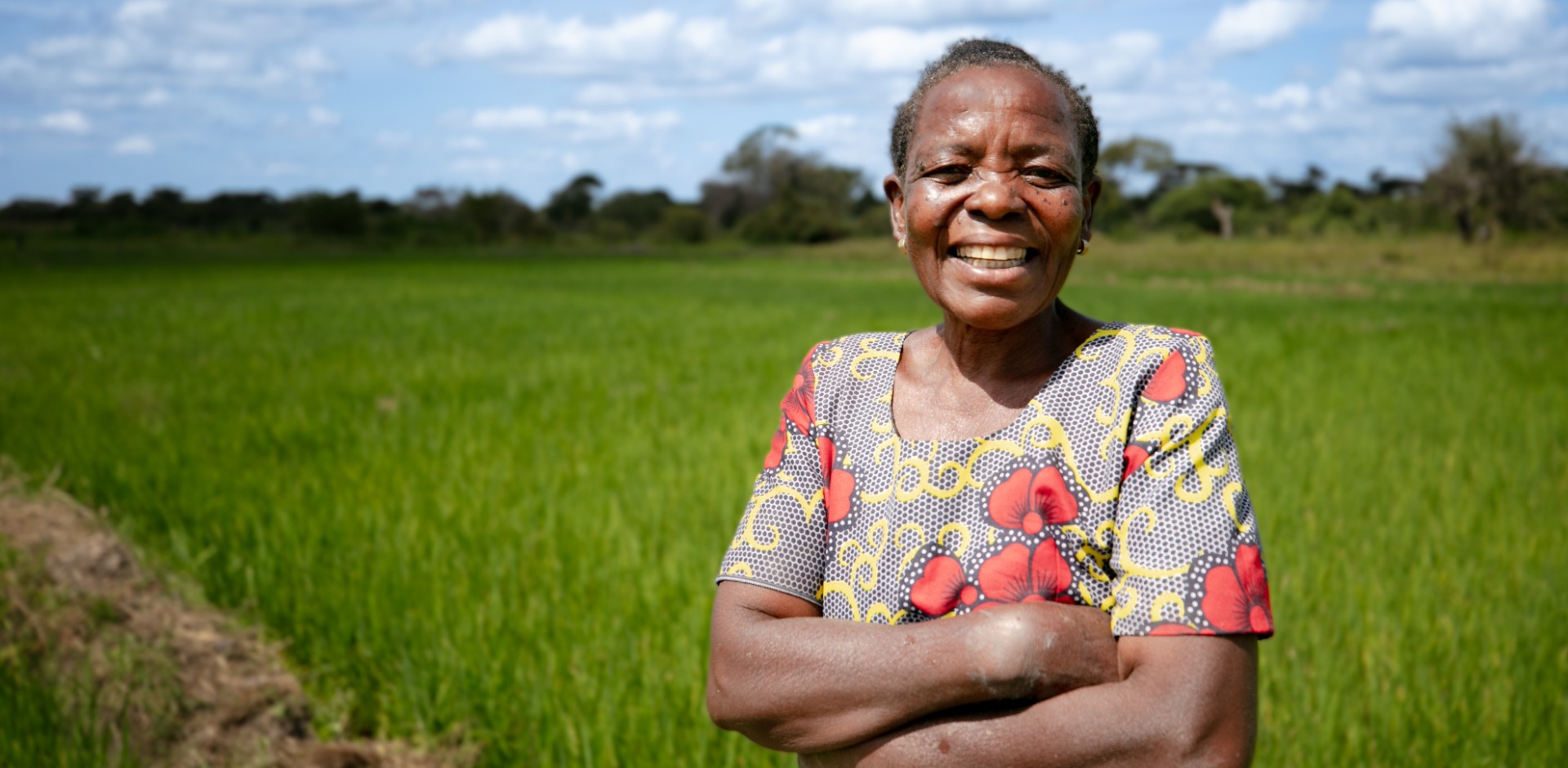
INTERNATIONAL DEVELOPMENT WEEK

By Diana Sharone Tumuhairwe
I met Justine Sukirana in her garden while she tended to her flourishing onion plants. As we spoke, a shy smile played on her face, blending hope and anxiety across her features. Throughout our conversation, one thing became clear: Justine’s goal in life is to educate her children. The beautiful thing was that she found a way to do this — but it was the fruit of much hard labor.

In 2006, Justine and her husband fled the Democratic Republic of Congo with their first two children, taking up residence in the Nakivale refugee settlement in Uganda. Back in Congo, Justine had been a subsistence farmer, and her husband had sold clothes. In the refugee settlement, however, they relied on donations, food aid, and whatever work they could find. Justine and her family live in Kisura C of the Nakivale refugee settlement. Kisura C is a peaceful neighbourhood, but prolonged dry spells cast a shadow of uncertainty over the otherwise vibrant community. “The long dry spells make us prone to hunger and food shortages,” Justine explained. September and October 2024 were brutally dry months. Justine’s attempts at large-scale farming ended in heartbreak as her maize and bean garden succumbed to the drought and all her livestock died from a disease outbreak. Her food and livelihood vanished, leaving her and her family to face hunger.
As a young girl, I made the mistake of dropping out of school. I didn’t understand the value of education then. Now, I prioritize my children’s education above all else. Through farming, we’re able to provide them with quality schooling. – Justine Sukirana
Justine’s biggest hope lay in the small plot of land Action Against Hunger allotted her as part of its Rwoma block farm. The new garden venture felt like a lifeline for her. Justine joined Action Against Hunger in 2023, and she obtained onion and tomato seeds and training from Action Against Hunger. The training equipped her with the knowledge she needed to grow the crops; for example, she learned how to make and use organic fertilizer that boosted her crop yields. Constant water supply from the block farm’s irrigation scheme offers vital protection against dry spells. “Vegetable farming isn’t typical here,” Justine explained. “Tomatoes and onions need a lot of water, and water has always been a problem. Our previous crops always died. That is why I am so thankful for the irrigation scheme. It is truly an answer to my prayers.”
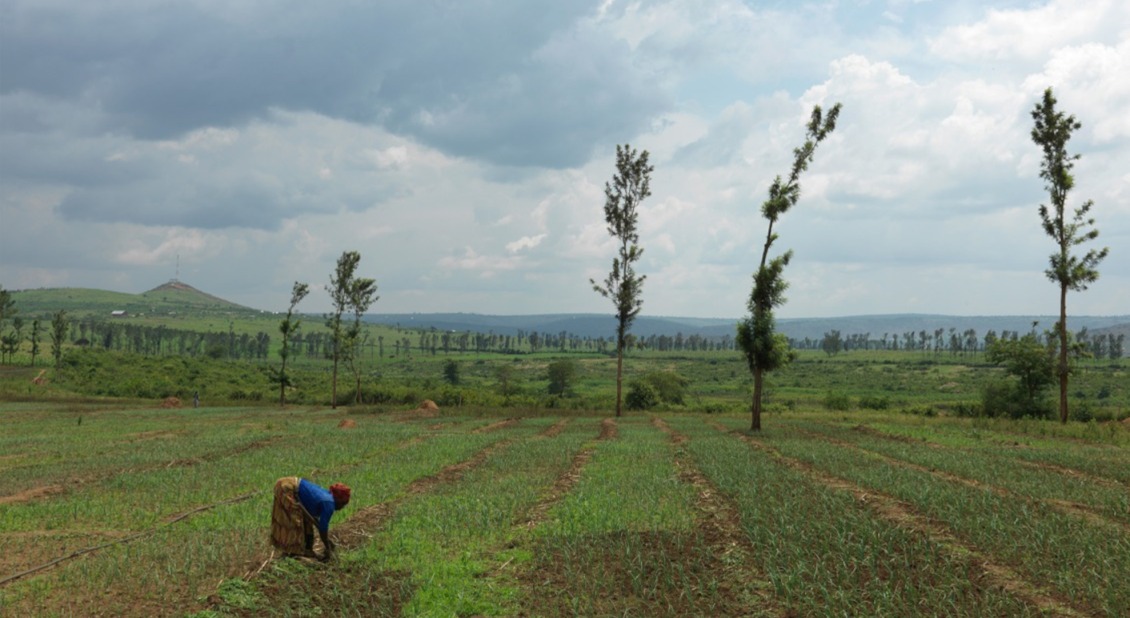
Onions and tomatoes are labour intensive. Luckily for Justine, farming is a family affair. She and her husband worked side-by-side, dividing the difficult tasks of onion and tomato cultivation as well as domestic work at home. With ten children to feed, it takes a joint effort to make ends meet.
In January 2025, Justine and her husband reaped the fruits of their labour. From their garden, they harvested 2.4 tons of onions, earning $2,614, and 13 tons of tomatoes, earning $4,466. The couple’s proximity to the refugee settlement camp allowed easy access to a market for selling their produce, and middlemen often seek them out directly to facilitate sales. Justine’s projections show that her income from this smaller plot of land will soon surpass what she had previously earned from a much larger plot of maize and beans.
Over the three agricultural seasons she spent with Action Against Hunger, she learned about nutrition in addition to farming. She learned that smaller portions of nutritious food are better at preventing malnutrition than large portions of just one staple food. “Before, we ate just one type of food,” she said. “But now, especially with growing children, we strive for a balanced diet.”
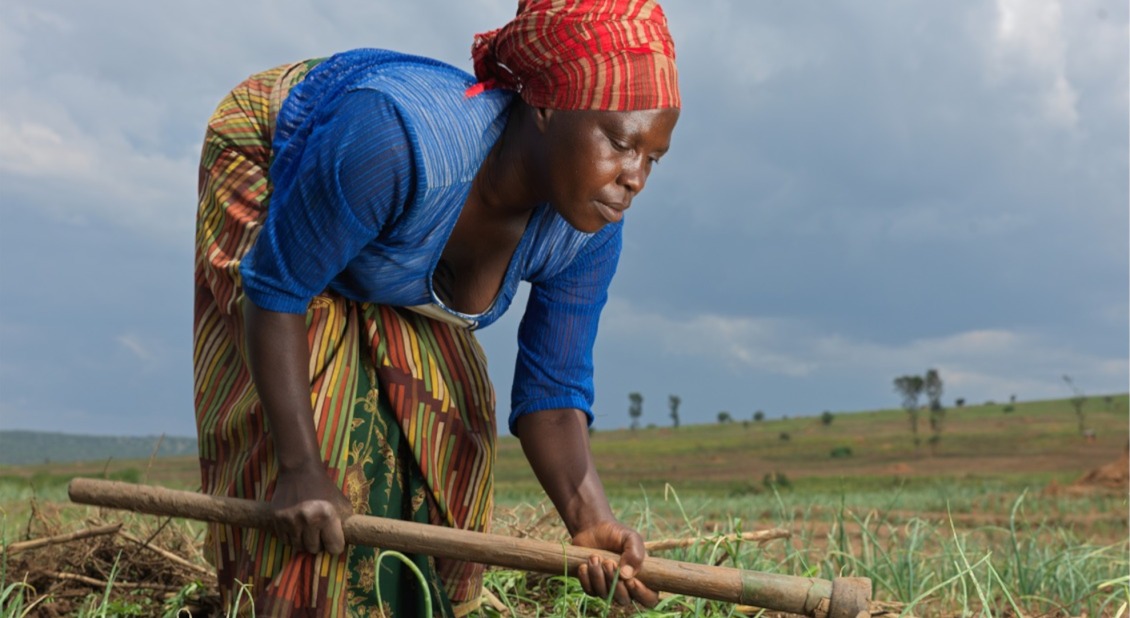
Farming provides the means for Justine to achieve her dream of sending her kids to school. All ten of her children attend premium private schools in the Nakivale refugee settlement. The eldest two attend Kabahinda Secondary School where she pays a staggering 650,000 Ugandan shillings ($177) per child, per school term. The other four are in Canaan primary school.
When asked why she prioritizes investing in her children’s education, Justine’s answer was simple: she wants to give them a better future. Justine’s own education had been cut short. She had dropped out, not for lack of funds, but because she felt self-conscious about her age and physical maturity and thus opted for marriage instead. Then, she saw how her educated peers easily secured decent jobs and earned stable incomes in Uganda. “I want my children to be useful people in the community,” Justine said. “Of the people I came with from Congo, the ones who were educated got labor contracts.” Their stability is a perpetual reminder of the value of education, and it fuels Justine’s determination to provide her children with the opportunities she denied herself. As she tends her thriving crops, Justine knows she is not just growing vegetables; she is growing a future for her children.
Uganda is home to 1.6 million refugees and asylum-seekers – Africa’s largest such population. It is also the third most nutritionally vulnerable region in East Africa, with an acute malnutrition rate of 20.2% and significantly high anemia rates. Action Against Hunger provides lifesaving interventions to strengthen nutrition, food security, livelihoods, and water, sanitation, and hygiene in several refugee-hosting districts. We improve nutritional health by treating moderate and severe acute malnutrition and by promoting breastfeeding and proper child-feeding practices. We also train health staff and parents to detect and prevent malnutrition.
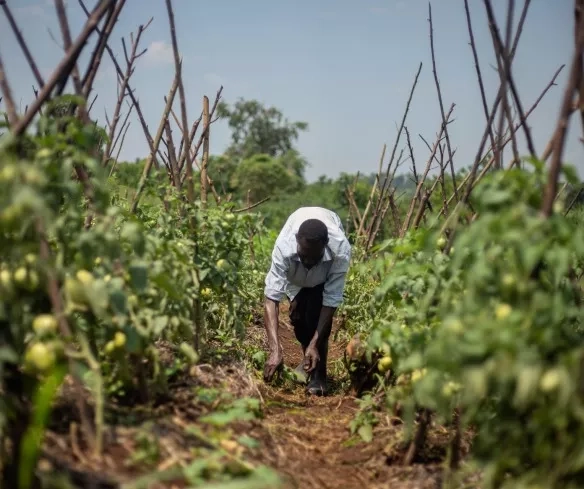
Farmers Reached Through Block Farming Supports
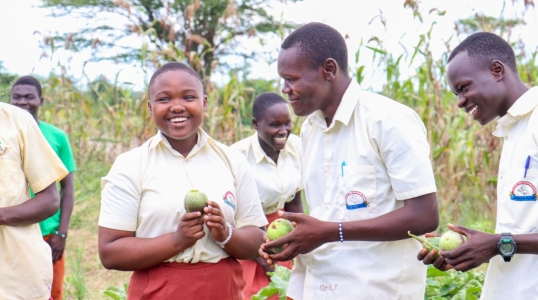
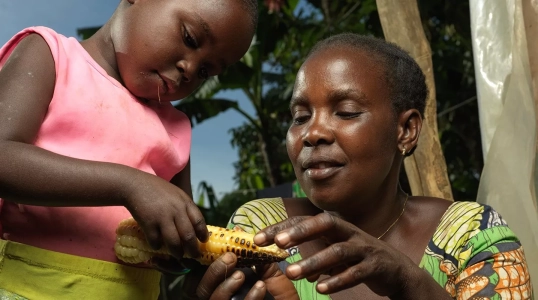
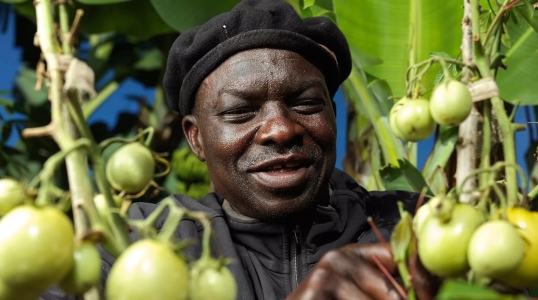
Join our community of supporters passionate about ending world hunger.